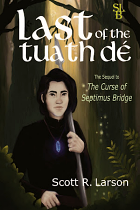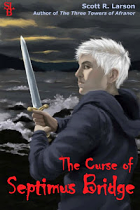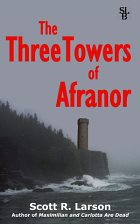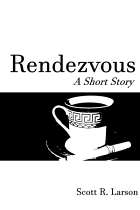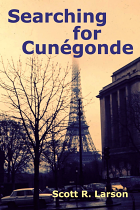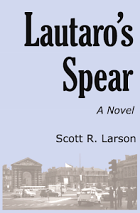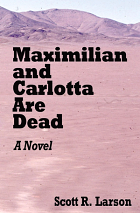Timeless essentials
As promised, here is my list of what I consider to be the ten essential time travel movies. I did quite a bit of work to get to this point, and if you don’t know how much work I went to, then travel back in time to this point in time.
First, I need to clarify something I said in that previous post. I asserted that none of the titles on my list figured in that earlier post and that sort of is technically true. But I did mention Doctor Who, and that name does figure on this page although in a slightly different context. So sue me.
Another note: This is not a “best of” list or even a “my favorite” list. Well, I mean, these films are favorites, but they are more essential than they are favorite. And I have listed them in chronological order, so don’t try to read any other inference in the way they are listed. Oh yeah, and even though it is a list of ten, I have grouped related movies into single entries, so don’t get on my back about the fact that I’ve included more than ten movies. Or do. I don’t care.
So now, with no further ado…
• The Time Machine (George Pal, 1960): As a kid sitting in a movie theater, to me this flick was pure magic. The filmmaker, Hungarian-born Pal (he also made 7 Faces of Dr. Lao), clearly understood cinematic magic. The illusion of Rod Taylor watching the decades pass by from the vantage point of his own invention was thrilling. For a long time, this was the only time travel movie as far as I was concerned. It was based on H.G. Wells’s novel, and in 2002 Wells’s grandson Simon directed a remake starring Guy Pearce. It was interesting but mostly unnecessary.
• La Jetée (Chris Marker, 1962): I didn’t see this one until years after it was made, but French legend Marker elevated the idea of time travel to an art film. The film is deceptively simple but exquisite. Whereas Pal’s movie used time travel as a device to go from one place to another and have an adventure, Marker contemplated the circular logic of revisiting one’s own childhood and how memory might intermingle with reality. His parade of black and white still images provided powerful fuel for the heart.
• Dr. Who and the Daleks and Daleks’ Invasion Earth: 2150 A.D. (Gordon Flemyng, 1965 & 1966): Okay, these weren’t exactly great movies from a cinematic point of view. But I include them because it would be wrong to have any sort of list dealing with time travel that didn’t work Doctor Who in somehow. These films were related to the cult BBC TV show and yet were completely separate. Peter Cushing’s titular time traveler is not a Time Lord from Gallifrey. He is a human genius from earth, and his surname actually is Who. While this is not Doctor Who canon (unless you accept some explanation that this takes place in a parallel universe), these remain, as of this writing, the only Doctor Who movies released to cinemas. There was a made-for-TV stand-alone movie in 1996, which starred Paul McGann and which is canon. David Yates was on about making a new feature film, but current Doctor Who showrunner Steve Moffat has pretty much shot that down.
• Somewhere in Time (Jeannot Szwarc, 1980): File this one under Time Travel as Chick Flick. The same year that Superman II came out, Christopher Reeve starred in this romantic movie opposite Jane Seymour. There is no pretense at a scientific explanation for Reeve traveling through time here; it’s something supernatural made possible by love. (Sigh.) But it’s actually a nice story and certainly gets at one of the aspects that makes the notion of time travel so appealing.
• Time Bandits (Terry Gilliam, 1981): When this first came out, we really wanted it to be one more Monty Python movie. But it was really something better, a Terry Gilliam movie. If Gilliam doesn’t have the most movies mentioned in this list, he does hold the distinction of getting two bullet points. This arguably belongs in the time-travel-as-pretext-for-jokes category, but it is also a manic fantasy adventure and it also has some of the Python-esque laughing-in-God’s-face attitude that gives it a bit of a metaphysical edge. Plenty of thought to go along with the laughs.
• The Terminator (James Cameron, 1984): Arnold Schwarzenegger was already a star after making Conan the Barbarian two years earlier, but this surprise hit action/scifi flick really kicked his career into high gear. It also put Cameron on the map as a filmmaker to pay attention to. The level of violence made it seem like an exploitation flick, so it was a pleasant surprise to find that there was a lot of intelligence behind it. The time travel twist revealed at the end was perfectly satisfying. Cameron made a very good slick Hollywood follow-up seven years later with Terminator 2: Judgment Day, but the subsequent sequels by Jonthan Mostow and McG were largely perfunctory.
• Trancers (Charles Band, 1985): This one isn’t on most other people’s short lists, but it made an impression on me. A bit reminiscent of The Terminator, it wasn’t a rip-off because it was actually made before Cameron’s movie even though it got released after. In this one, the good guy is in the future and goes back in time after the bad guy. It had a B-movie hipness to it that was a lot of fun and demonstrated a lot of the conventions we now routinely associate with time travel movies. Tim Thomerson played the time cop Jack Deth. The punk rock girl he joins forces with is none other than Helen Hunt. Thomerson would appear in five sequels (only one not direct to video), Hunt in two.
• The Back to the Future trilogy (Robert Zemeckis, 1985, 1989 & 1990): Could you have a list such as this one and not include these movies? Not really. Zemeckis’s flicks elevated time-travel-as-entertainment to a whole new level. Kids in the 1980s weren’t content to watch a man sitting quietly in his time machine while the world changed around him (as in The Time Machine). They wanted to see a kid like Michael J. Fox whoosh at high speed in a DeLorean. But the movie wasn’t just snazzy special effects. It also charmed with the idea of being in high school with one’s own parents and changing their past for the better. The sequels played joyfully with the idea of revisiting the past a second time and having to hide from your past self who was also out of time—becoming a complex mind game.
• Twelve Monkeys (Terry Gilliam, 1995): Remaking a half-hour French art film with Bruce Willis and Brad Pitt might seem a bit daft, but the result was one of the best movies of the late 20th century. Gilliam’s version was surprisingly faithful to the original but added and emphasized the fascinating question of how does one travel through time and not wonder if one is actually completely insane? Chris Marker’s original conceit of living long enough to re-experience an event from one’s own childhood and finally understand it is perfectly preserved and incredibly poignant.
• Meet the Robinsons (Stephen J. Anderson, 2007): Here’s another one that won’t be on many other such lists. But this Disney animated feature has stuck with me as a great example of an entertainment that deals with complex time travel causes and effects and paradoxes. And, unlike Gilliam’s films, you can watch it with a very small child. I still don’t understand why it didn’t make more of an impact. Maybe if Gilliam were to do a remake…
-S.L., 5 September 2012
If you would like to respond to this commentary or to anything else on this web site, please send a message to feedback@scottsmovies.com. Messages sent to this address will be considered for publishing on the Feedback Page without attribution. (That means your name, email address or anything else that might identify you won’t be included.) Messages published will be at my discretion and subject to editing. But I promise not to leave something out just because it’s unflattering.
If you would like to send me a message but not have it considered for publishing, you can send it to scott@scottsmovies.com.















